Uncovering the Power of Hibiscus Tea: Benefits, Brewing, and More
Hibiscus tea is a refreshing and delicious beverage that has gained popularity in recent years for its many health benefits. Made from the dried flowers of the hibiscus plant, this herbal tea is rich in antioxidants and other beneficial compounds that can help improve your overall wellness. Some studies have even suggested that hibiscus tea may help lower blood pressure, improve cholesterol levels, and aid in weight loss. In this article, we’ll explore what hibiscus tea is, its potential health benefits, and how to make and enjoy this delightful drink. So, whether you’re a tea enthusiast or simply looking for a healthy and flavorful alternative to sugary drinks, read on to learn all about hibiscus tea and hibiscus tea benefits.
Also Read : Rose Tea , Butterfly Pea Tea
What is Hibiscus Tea?

Hibiscus tea is a herbal tea made from the dried calyces of the hibiscus flower, also known as roselle. The hibiscus plant is native to tropical regions of the world and is known for its vibrant red, pink, and white flowers. The dried calyces, or sepals, of the hibiscus flower are used to make a tangy and refreshing tea that is enjoyed around the world.
Hibiscus tea recipe is fairly simple. The dried calyces are first rinsed and then steeped in hot water for several minutes. The resulting tea has a deep red color and a tart, fruity flavor that is often described as similar to cranberry or pomegranate juice.
Hibiscus tea can be consumed hot or iced, and is often sweetened with honey or sugar to balance out the tartness. It can also be blended with other herbs or fruits to create unique flavor combinations.
There are several different types of hibiscus tea available, including pure hibiscus tea and blends that combine hibiscus with other herbs and fruits. Some popular blends include hibiscus and mint, hibiscus and ginger, and hibiscus and lemon.
Health Benefits of Hibiscus Tea:
Here are some health benefits of hibiscus tea:

Antioxidant properties
Hibiscus tea is rich in antioxidants, which help protect your body against damage from harmful molecules called free radicals. Antioxidants can also help reduce inflammation in the body, which is linked to a range of chronic diseases.
May lower blood pressure
Some studies suggest that hibiscus tea may be effective in lowering blood pressure in people with high blood pressure. One study found that drinking hibiscus tea twice a day for four weeks resulted in a significant reduction in both systolic and diastolic blood pressure.
Can improve cholesterol levels
Hibiscus tea may also help improve cholesterol levels. One study found that drinking hibiscus tea for six weeks led to a decrease in total cholesterol, LDL cholesterol, and triglycerides, while also increasing HDL (good) cholesterol.
Potential weight loss aid
Some research suggests that hibiscus tea may help with weight loss and weight management. One study found that drinking hibiscus tea reduced body weight, body mass index (BMI), and body fat percentage in overweight individuals.
Other potential benefits
In addition to the above benefits, hibiscus tea may have other potential health benefits, including reducing inflammation, improving liver function, and boosting the immune system.
Hibiscus tea is not recommended for pregnant women, as it may cause miscarriage or premature labor. This is due to its potential to lower blood pressure and have a hormonal effect on the body. Therefore, it is best to avoid hibiscus tea in pregnancy and consult with your healthcare provider before consuming any new food or beverage.
How to Make Hibiscus Tea
Making hibiscus tea is a simple process that can be done at home with just a few ingredients. Here’s a step-by-step guide to making hibiscus tea:
Ingredients
- 4 cups of water
- 1/2 to 1 cup of dried hibiscus flowers
- Sweetener of your choice (optional)
- Lemon or lime slices (optional)
Instructions
- Rinse the dried hibiscus flowers in cold water to remove any dust or debris.
- In a medium-sized pot, bring 4 cups of water to a boil.
- Once the water is boiling, add the hibiscus flowers to the pot.
- Reduce the heat to low and let the hibiscus flowers steep in the water for about 10 to 15 minutes. The longer the tea steeps, the stronger the flavor will be.
- After steeping, remove the pot from heat and strain the tea to remove the hibiscus flowers.
- If desired, add sweetener of your choice (such as honey, sugar, or agave nectar) to the tea and stir until dissolved.
- Serve the hibiscus tea hot or chilled, with lemon or lime slices if desired.
Variations
- For a stronger hibiscus flavor, increase the amount of hibiscus flowers used.
- To add more depth to the flavor, try adding a few slices of fresh ginger or a cinnamon stick to the pot while steeping.
- To make a hibiscus iced tea, simply chill the tea in the refrigerator after steeping and serve over ice.
Serving Suggestions
Hibiscus tea can be enjoyed in a variety of ways, both hot and cold. Here are some serving suggestions to try:
- Hot tea: Enjoy a cup of hot hibiscus tea on a chilly day. Add a slice of lemon or a dash of cinnamon for added flavor.
- Iced tea: Chill the tea in the refrigerator and serve over ice. Add a sprig of mint or a slice of orange for a refreshing twist.
- Mixed with other teas: Hibiscus tea can be mixed with other teas to create a unique blend of flavors. Try mixing it with green tea, black tea, or mint tea.
- Cocktails: Use hibiscus tea as a base for cocktails. Mix with rum, vodka, or tequila for a delicious and refreshing drink.
- Smoothies: Blend hibiscus tea with fruits like strawberries, raspberries, and blueberries to create a nutritious and flavorful smoothie.
- Salad dressing: Use hibiscus tea as a base for salad dressing. Combine with olive oil, vinegar, and spices for a tangy and flavorful dressing.
- Syrup: Use hibiscus tea as a base for syrup. Combine with sugar and water to create a sweet and fruity syrup that can be drizzled over pancakes, waffles, or ice cream.
Where to Buy Hibiscus Tea:
Hibiscus tea can be found at a variety of places, including grocery stores, specialty tea shops, health food stores, and online retailers. Here are some places to look for hibiscus tea:
- Grocery stores: Many grocery stores carry hibiscus tea in their tea or natural food sections. Look for brands like Traditional Medicinals, Yogi, or Twinings.
- Specialty tea shops: If you’re looking for a wider selection of hibiscus teas, check out specialty tea shops in your area. These shops often carry high-quality loose-leaf hibiscus teas in a variety of flavors.
- Health food stores: Health food stores like Whole Foods or Sprouts often carry hibiscus tea in their tea or bulk food sections.
- Online retailers: There are many online retailers that sell hibiscus tea, including Amazon, Buddha Teas, and Harney & Sons. Shopping online can be a convenient way to find a wide selection of hibiscus tea varieties.
- Farmer’s markets: If you’re lucky, you may be able to find hibiscus tea at your local farmer’s market. Some vendors sell fresh or dried hibiscus flowers that can be used to make tea at home.
When buying hibiscus tea, it’s important to look for high-quality products that are free from additives or preservatives. Read the ingredient labels carefully to ensure that you’re getting pure hibiscus tea. Additionally, some hibiscus teas may be sweetened or flavored, so be sure to choose a variety that suits your taste preferences.
Conclusion
In conclusion, hibiscus tea is a delicious and healthy beverage with a long history of use in traditional medicine. Its high levels of antioxidants and anti-inflammatory properties make it a great choice for those looking to improve their health. Additionally, hibiscus tea is versatile and can be enjoyed in many ways, whether served hot or cold, on its own or mixed with other ingredients. Whether you buy hibiscus tea in-store or online, be sure to choose a high-quality product that is free from additives or preservatives. Incorporating hibiscus tea into your diet can be a simple and enjoyable way to support your overall well-being. So why not give it a try and see what this delicious tea can do for you?
FAQs
What is hibiscus tea good for?
A: Hibiscus tea is good for a variety of health benefits, including lowering blood pressure, reducing inflammation, boosting liver health, aiding in weight loss, and improving digestion. It is also rich in antioxidants, which can help protect against chronic diseases like cancer and heart disease. Additionally, hibiscus tea has a delicious, tart flavor and can be enjoyed in many ways, making it a great addition to a healthy diet.
How to make hibiscus tea?
A: To make hibiscus tea, simply steep dried hibiscus flowers in hot water for several minutes, then strain and sweeten to taste with honey or another natural sweetener if desired. Hibiscus tea can be enjoyed hot or cold and can be customized with the addition of spices or fruit.
Does hibiscus tea contain caffeine?
A: No, hibiscus tea does not contain caffeine. It is a caffeine-free herbal tea made from the dried calyces of the hibiscus plant. This makes it a great option for those looking to reduce their caffeine intake or avoid caffeine altogether.
Is hibiscus tea safe during pregnancy?
A: No, hibiscus tea is not safe for pregnant women to consume as it may cause miscarriage or premature labor.
Does hibiscus tea make you sleepy?
A: No, hibiscus tea does not make you sleepy. In fact, it may have the opposite effect due to its high vitamin C content, which can help boost energy levels. Additionally, hibiscus tea is caffeine-free and does not contain any compounds that would cause drowsiness.
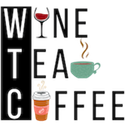
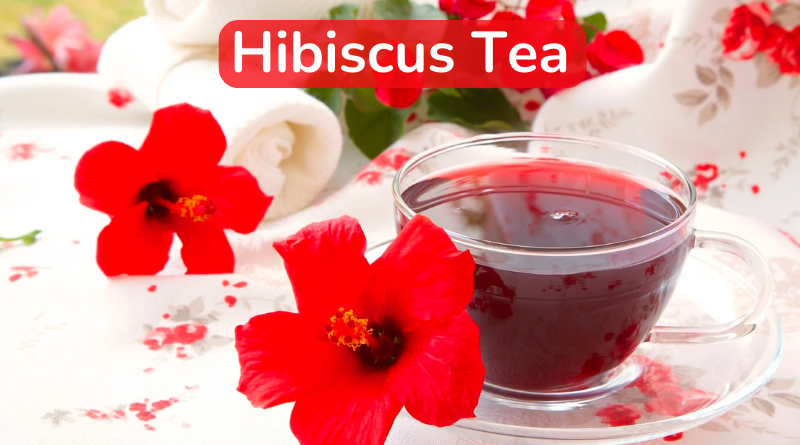
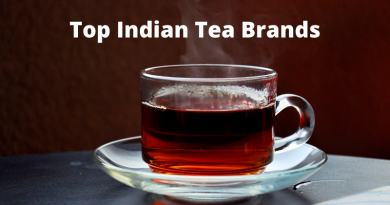
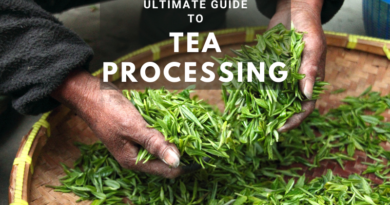
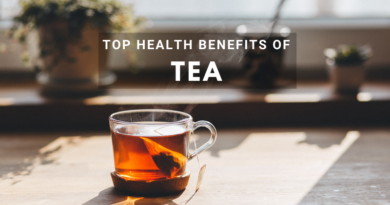
Pingback: Jasmine Tea: A Tasty and Fragrant Addition to Your Tea Collection